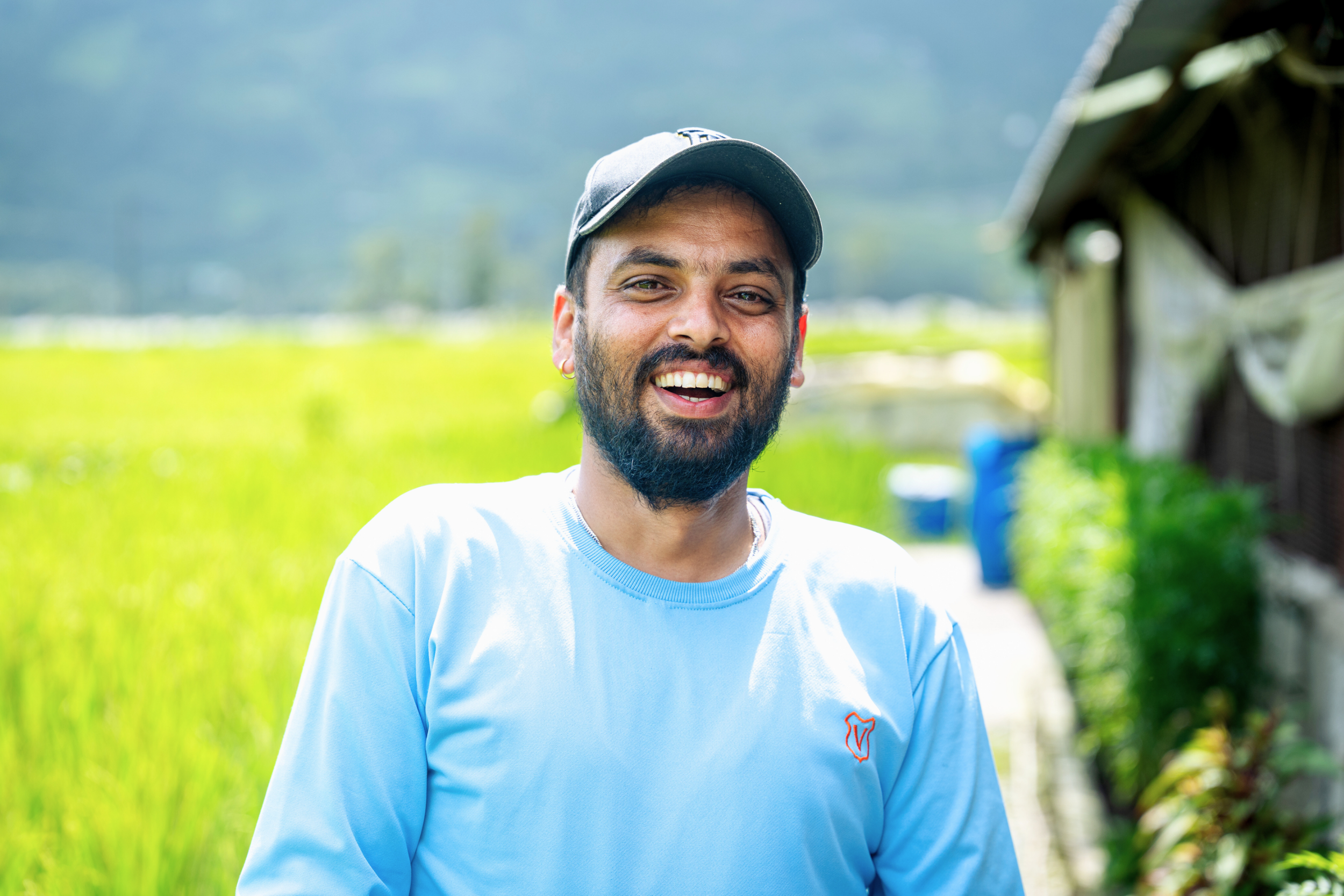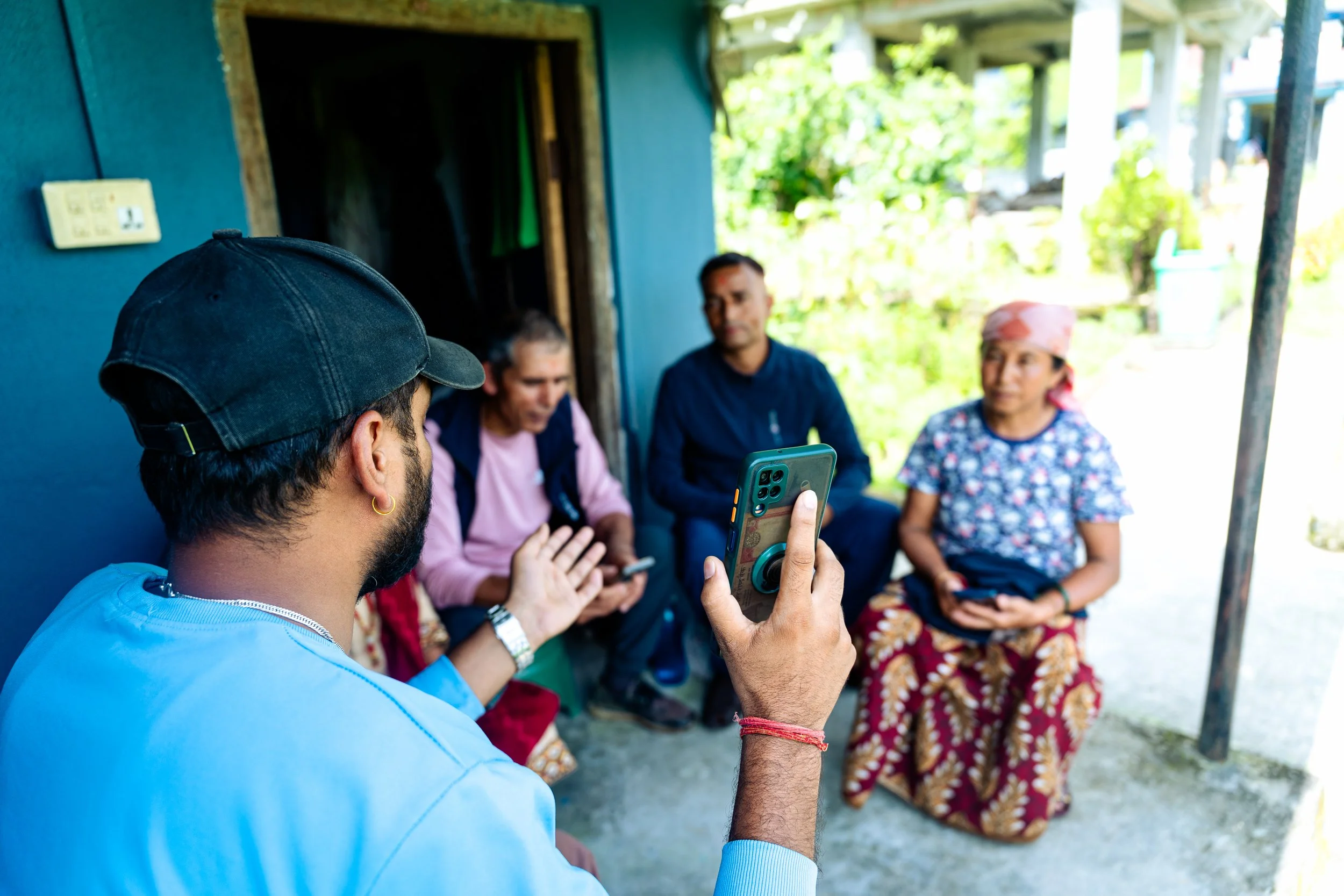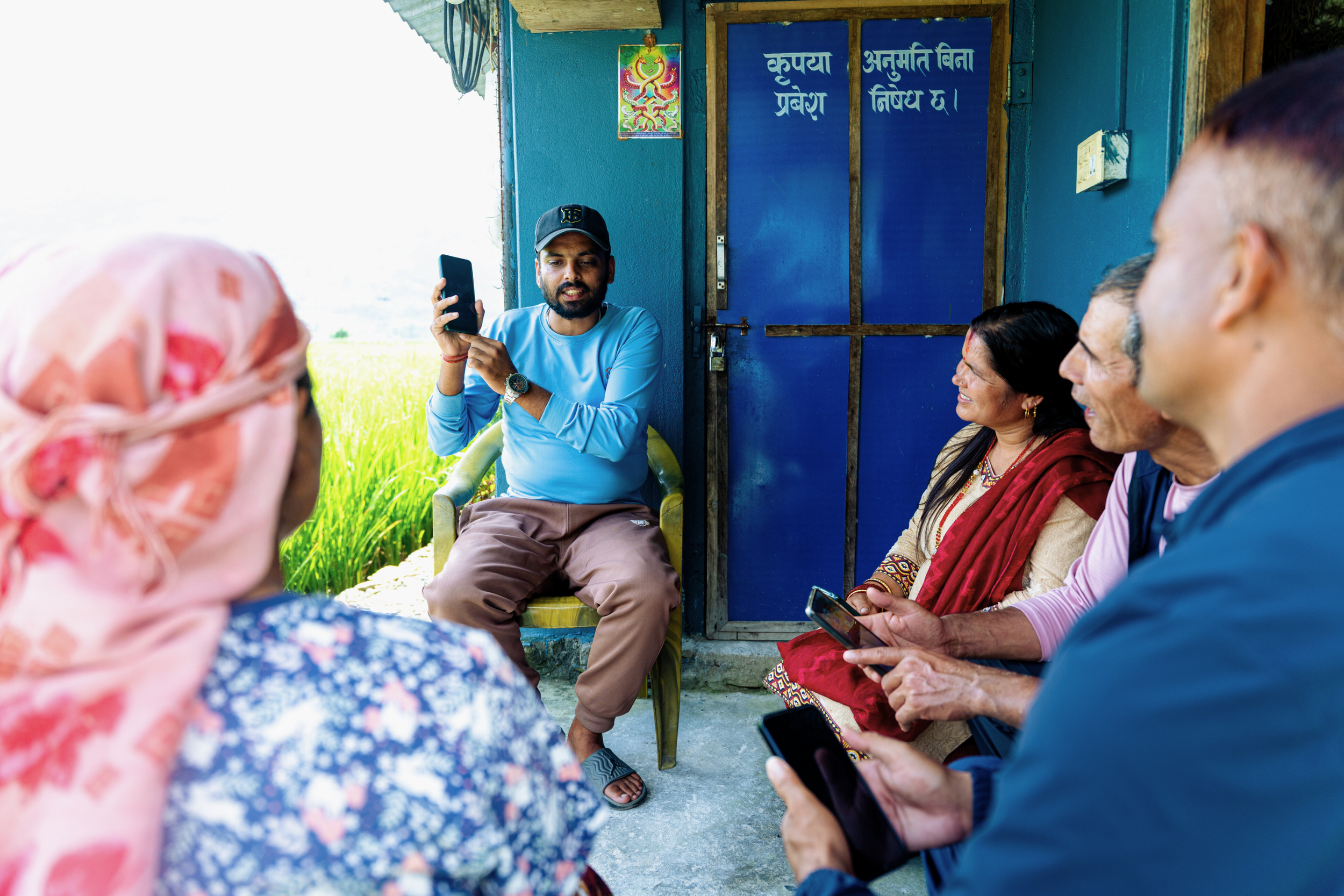AgriPath in Nepal Opens Up Digital Opportunities for Sustainable Agriculture Rooted in Community-Based Agents
10/06/2025
For generations, farming in Nepal was rooted in tradition. Knowledge was passed down from parents to children, and decisions were often based on habit and experience rather than research or technology. Selling produce online or using mobile apps to guide farming was unimaginable.
Shree Krishna Lamichhane grew up in this environment. His parents cultivated their land with dedication, relying only on traditional methods. “In their time, there was no access to digital tools, and even the idea of selling in an online market didn’t exist,” he recalls. But as part of a new generation of farmers, Shree Krishna always felt there had to be a better way to farm—one that combined tradition with innovation.
Innovation was needed because traditional methods alone could no longer keep pace with changing realities—climate variability, soil degradation, and increasing market demands required new approaches. Yet, opportunities to learn were limited. Agricultural extension services were scarce in rural areas, and most farmers depended on word of mouth or personal experience rather than structured training or reliable information. This gap left many farming families without the tools or knowledge to improve their yields or explore better market options.
That opportunity came when AgriPath, through iDE Nepal, began working in his community. With its mission to support smallholder farmers—especially women and youth—by making sustainable practices and digital advice more accessible, the project combined hands-on training with tools like the farmbetter app. Curious and eager to learn, Shree Krishna began attending these sessions, where he was introduced to new farming techniques and eventually to the app itself. At first, he wondered how an app could actually make a difference in farming. But once he started using it, he quickly realized its potential. The farmbetter app provided clear, practical guidance on what crops grow best in certain soils, what sustainable methods improve yields, and how to connect with markets.
“Not every farmer owns a mobile phone,” he explains, “but even if one person in the family has it, the whole family can benefit from this app.”
With this realization, Shree Krishna did not limit the knowledge to his own farm. He began sharing what he learned with his community, helping other farmers understand how to use the app and apply its lessons. This dedication earned him the recognition of being a Digital Champion—someone who not only embraces digital tools for his own progress but also empowers others to do the same. Many farmers who were initially hesitant have now started using digital tools after seeing the benefits through his experience.
Today, Shree Krishna takes pride in being part of this digital shift. “With farmbetter, we can learn right from our homes—whether it is about soil, crops, or markets. It has opened a new path for us,” he says with confidence.
For him, farmbetter represents more than just an app. It is a bridge that connects the wisdom of his parents’ generation with the possibilities of the digital age. It has transformed him into a farmer who not only secures his own livelihood but also inspires others to embrace technology for a better future in agriculture.



